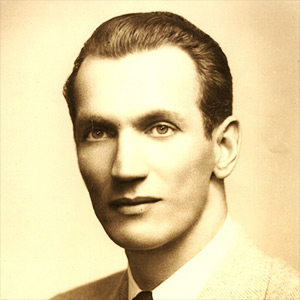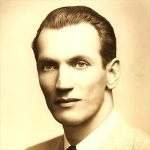
 Scripps College provides countless opportunities for the Claremont community to engage with the global community – and few are more unique than the European Union Center of California. The Center frequently bridges the divide between the United States and its European counterpart with grants, workshops, and events designed to forge educational, cultural, and diplomatic relationships with the scholars and practitioners of the EU. This fall, they explore the moral and ethical responsibility of societies to protect each other with a two-day conference on the occasion of World War II hero Jan Karski’s 100th birthday.
Scripps College provides countless opportunities for the Claremont community to engage with the global community – and few are more unique than the European Union Center of California. The Center frequently bridges the divide between the United States and its European counterpart with grants, workshops, and events designed to forge educational, cultural, and diplomatic relationships with the scholars and practitioners of the EU. This fall, they explore the moral and ethical responsibility of societies to protect each other with a two-day conference on the occasion of World War II hero Jan Karski’s 100th birthday.
“Karski’s legacy raises enduring questions about rescue and intervention, about the circumstances under which members of the international community ought to considering intervening in other states,” says Professor David Andrews, Gabrielle Marie-Louise Jungels-Winkler Chair in Contemporary European Studies and director of the EU Center. “These are the difficult questions we wish to explore at the conference – questions that are incredibly important and for which there are no easy answers.”
A Polish World War II resistance fighter and professor at Georgetown University, Karski began his journey to heroism when he worked as a courier and smuggler for the Polish Underground. Though he was a Roman Catholic, Karski made numerous pleas on behalf of European Jews to U.S. policymakers – including President Roosevelt and Supreme Court Justice Felix Frankfurter – to stop the Holocaust. His requests were often dismissed, as the horrors of the war he described were disbelieved.
After the war, Karski emigrated to the United States, his actions during wartime earning him awards, accolades, and honorary citizenship in the State of Israel. Today, his Jan Karski Educational Foundation strives to instill, particularly in youth, “the values of leadership, courage, and integrity, as exemplified by the life of Jan Karski.”
“The Karski conference opens room for discussion on what courage is, something so valid nowadays when business coincides so strongly with politics and decisions affecting people and perhaps even entire nations,” says Maja Stroinska, administrative director of the EU Center. “I hope every Scripps student has such courage inside. Perhaps as future decision makers they will manifest such strength when making the right choices.”
“Countries like Syria, the Ukraine, and Libya are experiencing tragic levels of suffering. Will intervention makes things better?” adds Andrews. “That’s a valid question that many Scripps students are asking. And that’s the sort of question we’ll be addressing at the conference.”
Karski was awarded the title of “the Humanity’s Hero’s spirit” by numerous countries, a spirit that will hopefully inspire students at The Claremont Colleges. To take part in the event bearing his name, which is free and open to the public, download the conference schedule or stop by the Hampton Room in Malott Commons on Friday, September 26, from 5:00-8:00 pm or Saturday, September 27, from 10:00 am-2:45 pm.

